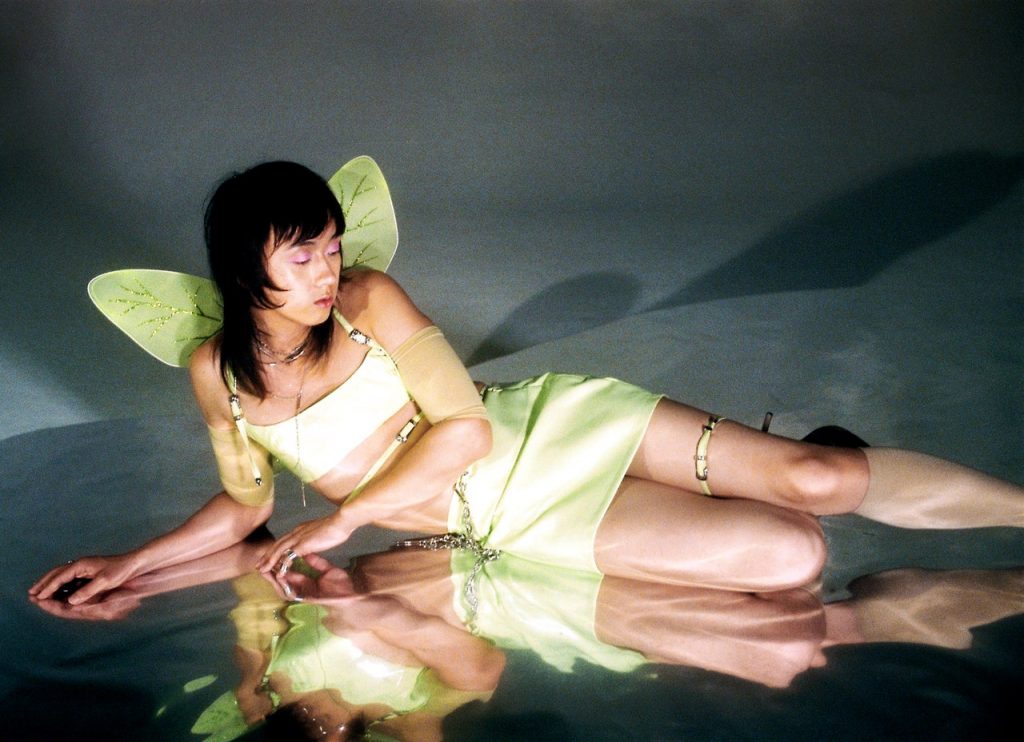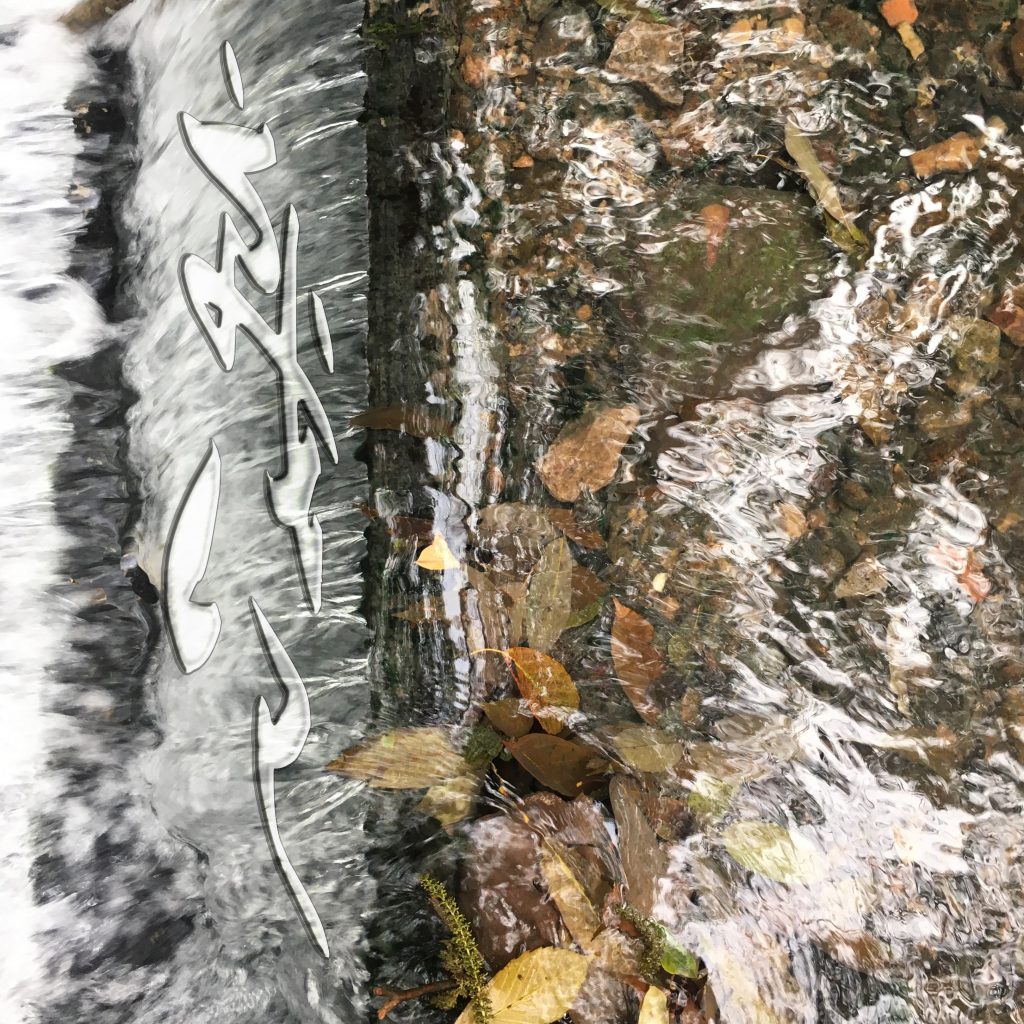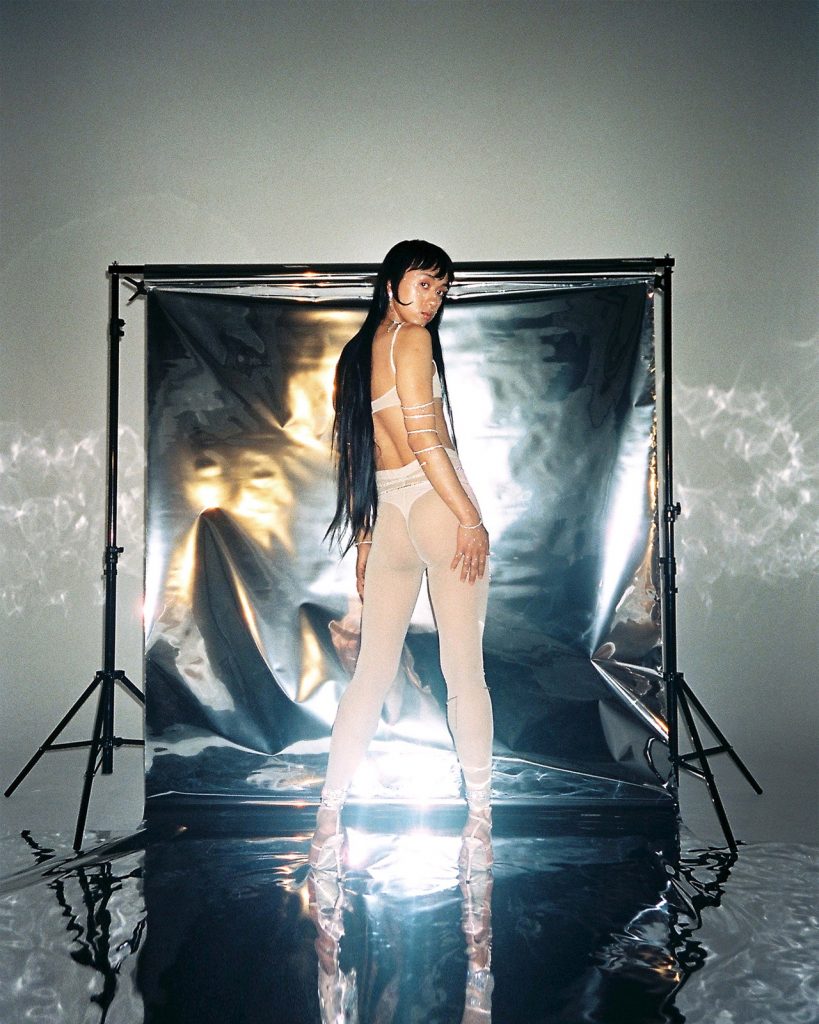“To be honest, I do think the majority of people in our time now are in some sort of intersectionality,” writes Rui Ho via email about the dual perspective of being a Guandong-born artist ordinarily based in Berlin. “I hope to provide a solution for all the ‘other’ kids, who are not 100 percent comfortable in existing and creating in only one culture.” The producer is writing from China, where she’s been quarantining since right before German lockdown. Having seen the situation unfold through friends and family at home, Ho was quick to recognise the warning signs and made the decision to move while others in Europe felt little urgency. “I am feeling much chiller now, just hoping that everyone I know are staying safe and this pandemic can be in the past very soon.”

In light of this new reality, Ho is one of 15 artists and producers who’ve contributed to AQNB’s even my dreams don’t go outside art and music compendium, released on April 22 and intended to build positive momentum and financial support for our scene during the coronavirus crisis. Ho’s ‘Berserk’ is an ecstatic 8-bit-emulating rave number exploding with the discombobulating, cross-genre globalism only an internet-oriented artist living across countries could manage.
“My work is very much about exploring the way of expressions that are inspired by all my experiences,” Ho explains, whose story includes a strict upbringing in the coastal South China province she was born into, as well as university at Paris’ Sorbonne Nouvelle. There she studied cultural mediation, while her real education happened when she discovered the art of voguing—the New York ballroom house culture made famous by Madonna in the 90s. On moving to Germany four years ago, Ho was picked up by Berlin Community Radio‘s Incubator program at what she calls a ‘crucial time’ in her creative development, going on to drop two releases via Shanghai-based label Genome 6.66Mbp. Her most recent Wings of Light EP came out on London’s Objects Limited last year, drawing together trance, hardcore and jungle with Chinese folklore to create a compound intensity gesturing toward her own multidimensionality.
It’s with all this in mind, that Ho shared her thoughts on the “explosive, intense and manic” energy of here even my dreams don’t go outside contribution, aptly-titled ‘Berserk’, while working on finishing her album debut from home.
**There are a lot of literary references to your music, and you studied cultural mediation at the Sorbonne Nouvelle, how important is language to your music and style?
Rui Ho: To be honest, language is not a super important factor. I am not seeing myself as a poet or anything. I do believe in story telling and what I am doing, usually with a longer-length piece, is to create an interesting, loose storyline around it. The references are basically a guideline in exploring the themes, and help people better in understanding the music. It’s more of a supporting role in my music, and I do wish to simplify it even more so that it can feel more relevant to an even bigger audience.
**Many queer artists I’ve talked to have often referenced the internet as being an emancipatory space that defined their creative education early in life. You’ve mentioned there was little club culture that, at least you had access to in China and a lot of it came from online, is this an experience you can relate to at all?

RH: Oh, yes. That is definitely the case. Although, I would say the internet wasn’t the same as what it has become nowadays. But I still get most of my western musical ‘education’ online, and by buying bootleg CDs. It was very important in exploring my identity and building my musical taste. There was no club culture during the days I was growing up. At least not in my town, and I went to a very strict junior and high school. So listening to music online was sort of my only escape.
I can relate to the internet culture mostly after high school, especially after I moved to Europe and when SoundCloud was starting to get popular. I met a lot of people through SoundCloud, including all the people from Genome.
**I think that sonically and structurally this comes through a lot too, your music feels dislocated geographically and stylistically, is this a read you can relate to?
RH: Ah ha, yes. Totally. I mean, it’s really hard to pin down my music, and I kind of resist that as well. I talked about it in another interview about how being an outsider influenced how I make music and approach the world. The internet is definitely a space that allows people to express themselves however they want.
**I’m interested in your relationship to voguing, dance and also House of Ninja. Is there much crossover between your practice now? I’m also curious as to how one becomes a member in the worldwide network.
RH: Well, at the moment there isn’t a big crossover in my practice and voguing, but it’s definitely a huge influence and inspiration on my personal life. Maybe in the future I can combine it into my practice as well. The reason is that I haven’t really found the way to make sense out of implementing it. Because I know so much of the history of voguing. I respect it and don’t want to just be another artist exploding it and altering it into something else.
I got into House of Ninja when I was still studying in Paris. There is a much stronger scene in Paris due to the demography of Paris, the POC queer kids are very much in need of a subculture like this to express themselves. I was feeling super related to it when I was in Paris, and I started going to balls and classes, and eventually ended up walking in balls (participating). That’s how I have got recruited into the house. There isn’t a very strong guideline in how to recruit, but you have to be approached by a mother, and if you are willing to be a part of the house, you can.

**Stylistically, there’s been mention in press about hardcore, hard trance, jungle, as influences, while conceptually often referring to Chinese literature and folklore. I’d be interested to know more about specifics of how they influence your music, and what your personal relationship is to them…
RH: I love the intensity of all these rave-y sounds, and I am extremely drawn to the brighter and more emotional ways of using these elements. That’s why I love all the melodic ones so much better: progressive trance, happy hardcore, mákina, et cetera. I think it’d be really fun to combine the Chinese elements into these frameworks and see what emotions or movements that it can evoke in people.
**Also, while the musical references are kind of built around a framework drawing on a predominantly western canon, there are sonic and structural elements to the music that is reminiscent of a non-western sound (an erhu maybe), can you tell me something about those musical choices?
RH: I think that the contemporary pop music is built on a western structure, that’s decided by our history and it’s kind of a fact other than an opinion. Anything that doesn’t follow this structure will be thrown into the category of ‘world music’. My vision is quite simple, which is to make the most Chinese contemporary pop/experimental music, because if I chose to go into ‘world music’, the conversation wouldn’t really be there same. It’d be even harder to reach the younger generation.**













